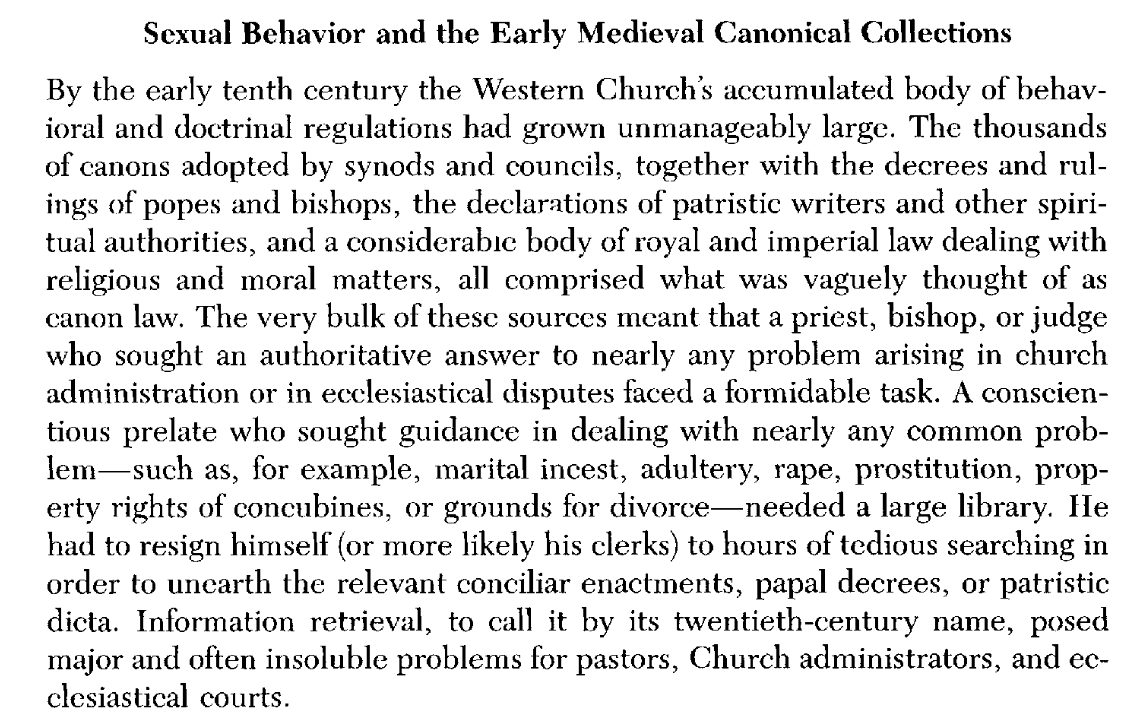so I'm reading about early middle ages catholic law and the author of the book (in 1987) points out that the problem with all these various ad-hoc writings about what penance you should for for X sin or Y crime was that there was just too much writing to be able to access it all quickly when needed.
source: Law, Sex, and Christian Society in Medieval Europe (James A. Brundage
